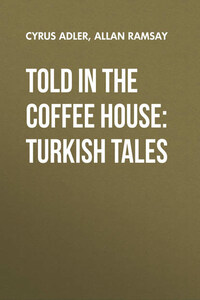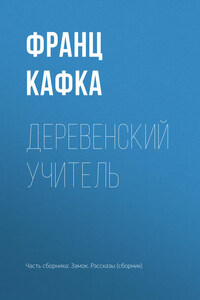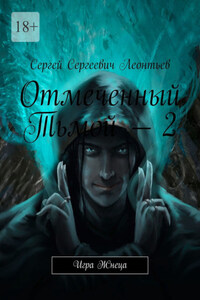In the course of a number of visits to Constantinople, I became much interested in the tales that are told in the coffee houses. These are usually little more than rooms, with walls made of small panes of glass. The furniture consists of a tripod with a contrivance for holding the kettle, and a fire to keep the coffee boiling. A carpeted bench traverses the entire length of the room. This is occupied by turbaned Turks, their legs folded under them, smoking nargilehs or chibooks or cigarettes, and sipping coffee. A few will be engaged in a game of backgammon, but the majority enter into conversation, at first only in syllables, which gradually gives rise to a general discussion. Finally, some sage of the neighborhood comes in, and the company appeals to him to settle the point at issue. This he usually does by telling a story to illustrate his opinion. Some of the stories told on these occasions are adaptations of those already known in Arabic and Persian literature, but the Turkish mind gives them a new setting and a peculiar philosophy. They are characteristic of the habits, customs, and methods of thought of the people, and for this reason seem worthy of preservation.
Two of these tales have been taken from the Armenian, and were received from Dr. K. Ohannassian of Constantinople. For one, The Merciful Khan, I am indebted to Mr. George Kennan. None of them has been translated from any book or manuscript, and all are, as nearly as practicable, in the form in which they are usually narrated. Most of the stories have been collected by Mr. Allan Ramsay, who, by a long residence in Constantinople, has had special opportunities for learning to know the modern Turk. It is due to him, however, to say that for the style and editing he is in no wise responsible, and that all sins of omission and commission must be laid at my door.
Cosmos Club, Washington,
February 1, 1898.
HOW THE HODJA SAVED ALLAH
Not far from the famous Mosque Bayezid an old Hodja kept a school, and very skilfully he taught the rising generation the everlasting lesson from the Book of Books. Such knowledge had he of human nature that by a glance at his pupil he could at once tell how long it would take him to learn a quarter of the Koran. He was known over the whole Empire as the best reciter and imparter of the Sacred Writings of the Prophet. For many years this Hodja, famed far and wide as the Hodja of Hodjas, had taught in this little school. The number of times he had recited the Book with his pupils is beyond counting; and should we attempt to consider how often he must have corrected them for some misplaced word, our beards would grow gray in the endeavor.
Swaying to and fro one day as fast as his old age would let him, and reciting to his pupils the latter part of one of the chapters, Bakara, divine inspiration opened his inward eye and led him to pause at the following sentence: "And he that spends his money in the ways of Allah is likened unto a grain of wheat that brings forth seven sheaves, and in each sheaf an hundred grains; and Allah giveth twofold unto whom He pleaseth." As his pupils, one after the other, recited this verse to him, he wondered why he had overlooked its meaning for so many years. Fully convinced that anything either given to Allah, or in the way that He proposes, was an investment that brought a percentage undreamed of in known commerce, he dismissed his pupils, and putting his hand into his bosom drew forth from the many folds of his dress a bag, and proceeded to count his worldly possessions.
Carefully and attentively he counted and then recounted his money, and found that if invested in the ways of Allah it would bring a return of no less than one thousand piasters.
"Think of it," said the Hodja to himself, "one thousand piasters! One thousand piasters! Mashallah! a fortune."
So, having dismissed his school, he sallied forth, his bag of money in his hand, and began distributing its contents to the needy that he met in the highways. Ere many hours had passed the whole of his savings was gone. The Hodja was very happy; for now he was the creditor in Allah's books for one thousand piasters.
He returned to his house and ate his evening meal of bread and olives, and was content.
The next day came. The thousand piasters had not yet arrived. He ate his bread, he imagined he had olives, and was content.
The third day came. The old Hodja had no bread and he had no olives. He suffered the pangs of hunger. So when the end of the day had come, and his pupils had departed to their homes, the Hodja, with a full heart and an empty stomach, walked out of the town, and soon got beyond the city walls.
There, where no one could hear him, he lamented his sad fate, and the great calamity that had befallen him in his old age.
What sin had he committed? What great wrong had his ancestors done, that the wrath of the Almighty had thus fallen on him, when his earthly course was well-nigh run?
"Ya! Allah! Allah!" he cried, and beat his breast.








